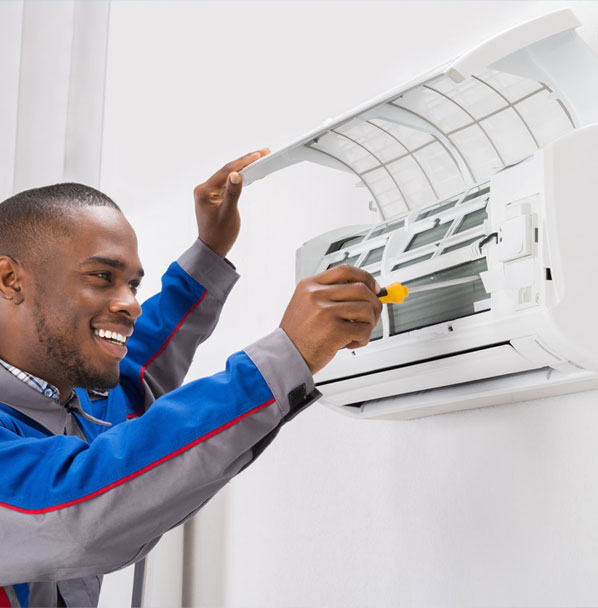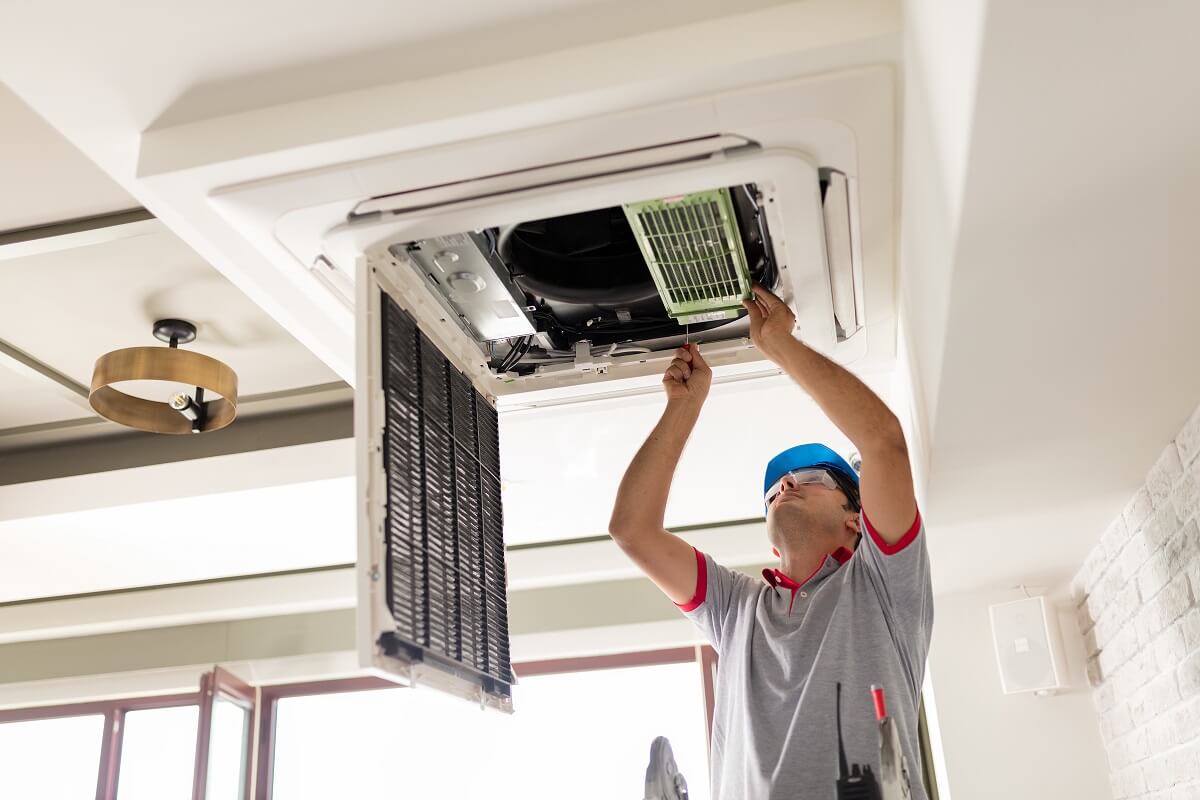How Air Conditioning Enhances Comfort and Air Quality in Your Home
The integration of air conditioning systems in domestic settings plays an important function in enhancing both comfort and air quality. By properly managing temperature level and humidity, these systems create an environment for health, which is especially essential in today's increasingly polluted ambience. Moreover, contemporary air conditioning devices are furnished with sophisticated filtration modern technologies that can significantly reduce airborne contaminants. The ramifications of air conditioning extend beyond plain comfort; they touch on power effectiveness and total health. What various other factors should be taken into consideration when assessing real impact of cooling on our living spaces?
Advantages of Air Conditioning
A/c offers various advantages that extend beyond simple convenience, considerably improving interior settings. One of the primary advantages is boosted air top quality. Air conditioning systems filter and flow indoor air, eliminating dirt, irritants, and pollutants, thus contributing to a much healthier living room. This is specifically advantageous for individuals with breathing concerns or allergic reactions, as cleaner air can minimize symptoms and advertise total health.
In addition, air conditioning plays a vital function in humidity control. Extreme humidity can result in mold growth and architectural damages, while air conditioning systems aid keep optimal moisture levels. This not only secures residential or commercial property but also boosts convenience by lowering the clamminess usually connected with high humidity.
Energy performance is another important benefit. Modern cooling systems are made to run a lot more effectively than older models, minimizing power consumption and decreasing energy bills. Furthermore, programmable thermostats permit individuals to optimize cooling schedules, making certain that energy is made use of carefully.
Last but not least, air conditioning adds to increased efficiency. Air Conditioning Brisbane. In offices, a regulated climate can enhance focus and effectiveness, highlighting the value of a/c in both property and business settings
Exactly How Cooling Improves Convenience
Improved convenience in interior environments is among one of the most considerable advantages supplied by cooling systems. These systems efficiently manage indoor temperature levels, making sure a consistently positive environment despite external climate condition. By keeping a steady temperature level, a/c permits owners to take part in daily tasks without the pain frequently triggered by excessive warm or humidity.
In addition, air conditioning systems add to boosted rest quality. A cooler setting contributes to better sleep, as it aids lower the body's core temperature level, signaling that it is time to rest. This is specifically vital during the warmer months when high temperatures can interfere with rest patterns.
Additionally, contemporary a/c units usually come furnished with programmable thermostats, allowing customers to tailor their convenience degrees according to individual choices and routines - Air Conditioning Brisbane. This versatility not just improves comfort but also promotes power effectiveness, as systems can be set to operate only when required

Enhancing Indoor Air Top Quality
A considerable advantage of a/c systems is their capacity to improve interior air quality. By flowing and filtering air, these systems eliminate airborne contaminants, irritants, and contaminants, leading to a healthier living atmosphere. High-efficiency particle air (HEPA) filters, commonly utilized in modern-day air conditioning devices, effectively capture dust, plant pollen, mold spores, and animal dander, therefore reducing the existence of toxic irritants that can exacerbate breathing concerns and allergic reactions.
Furthermore, cooling systems can aid mitigate the impacts of exterior air pollution. By maintaining a closed interior environment, they limit the increase of exterior allergens and particulate issue. This is particularly advantageous for people with asthma or other respiratory system problems, as this post improved air top quality can add to far better health end results.
In addition, some innovative air conditioning designs come geared up with ultraviolet (UV) light modern technology, which additionally purifies the air by reducing the effects of germs and infections. Normal upkeep of these systems, consisting of filter replacement and cleaning, is important to ensure optimal efficiency and air top quality. Generally, the function of air conditioning in improving indoor air high quality can not be overstated, making it an indispensable part of modern-day home check these guys out comfort.
Handling Moisture Levels
Reliable management of moisture levels is vital for maintaining a comfy and healthy indoor atmosphere. High humidity can cause pain, promoting a feeling of dampness and making it challenging for the body to manage its temperature. This problem can additionally produce an ideal breeding place for mold and mildew, allergen, and other irritants, ultimately affecting interior air high quality.
Air conditioning systems play a significant function in managing moisture. By cooling the air, they likewise evaporate it, drawing out excess wetness as the air passes over cold evaporator coils. This process not only boosts convenience however additionally minimizes the dangers connected with high moisture. Ideally, interior humidity levels need to be preserved between 30% and 50% for ideal comfort and health and wellness.
Along with a/c, utilizing dehumidifiers can additionally assist in taking care of moisture degrees, especially in locations prone to excess wetness, such as cellars or shower rooms. Regular upkeep of cooling systems, including cleansing and changing filters, can enhance their performance in moisture control. By successfully taking care of moisture, house owners can create an extra pleasant home while decreasing health dangers related to inadequate interior air quality.
Energy Efficiency and Sustainability
A/c systems' power effectiveness is significantly important in today's ecologically aware culture. As families seek to decrease their carbon impacts, the demand for energy-efficient a/c systems has risen. These systems are developed to use much less energy while preserving ideal indoor convenience, consequently reducing energy expenses and decreasing environmental effect.
Technical developments have actually caused the development of high-efficiency designs that make use of ecologically pleasant cooling agents and progressed warm exchange procedures - Air Conditioning Brisbane. Systems with higher Seasonal Power Effectiveness Ratios (SEER) and Energy Efficiency Ratios (EER) not only perform far better however additionally add to a sustainable future by reducing greenhouse gas exhausts
Furthermore, incorporating smart innovation right into cooling systems permits for even more accurate temperature control and energy monitoring. Home owners can readjust settings from another location, enabling them to maximize energy use and minimize waste.
Moreover, normal maintenance and proper installation are crucial for making sure that cooling devices operate at peak effectiveness. This dedication to power performance not only boosts the durability of the system but additionally lines up with broader sustainability objectives, ultimately you can check here profiting both the individual home owner and the setting.
Conclusion
